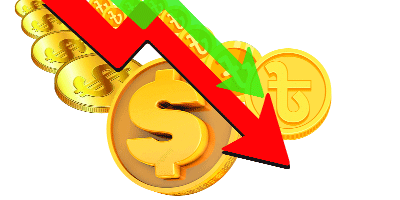Taka devalued 30 pc in 2 years
Mahfuz Emran: Once upon a time people can buy sacks full of goods by pocket full of taka but they have to spend sacks full of taka to buy pocket full of goods, this is told by the President of the Global Economist Forum Dr Enayet Karim regarding the devaluation of taka.
Taka, the beloved currency note of Bangladesh has depreciated by 30 percent in the last two years due to the dollar crisis. In July 2021, 1 dollar was exchanged at Tk 84.80, but currently it is being exchanged at Tk 109.50. Bangladesh Bank has sold $2,200 million in two years to meet the demand. According to sources, the fall in the dollar exchange rate has had an impact on the entire financial sector.
Traders are facing challenges to meet high import costs and sources of foreign exchange. The impact of high import costs has been borne by the consumer. As the prices of goods and services increase, the purchasing power of consumers decreases and spending decreases. Like other countries, Bangladesh also has foreign debt denominated in US dollars.
As the taka depreciates, it costs more to repay the same amount of foreign debt in dollars, which may put more pressure on the taka. According to sources, various factors are blamed for the ongoing dollar crisis, including a significant gap in demand and supply of dollars in the country.Dwindling foreign exchange reserves, less remittances coming through legal channels and transactions in hundi have helped exacerbate the dollar crisis.
In order to stabilize the foreign currency dollar market, Bangladesh Bank has sold about $2000 billion in the last 25 months (from July 2021 to August 2023).
Of this, it sold $1,350 million in the last financial year (2022-23) and $762 million in the financial year 2021-22. Apart from this, the first month of the current financial year 2023-24 sold Tk 114 crores in July, which limited the high demand and supply of dollar in the market.
As a result of the sale of dollars, the foreign exchange reserves of Bangladesh Bank have decreased and the local currency has also become a crisis.
As a result, many banks are in liquidity crisis. In June 2022, the country’s foreign exchange reserves fell from $4,182 million to $2,960 million on July 26 this year.
According to Central Bank data, excess liquidity in banks in June 2022 was Tk 203,000 crore. At the end of June 2023, the excess liquidity has come down to Tk 1.67 lakh crore.
Ahsan H. Mansoor, executive director of the Policy Research Institute, said that the unusual fluctuation in the exchange rate has resulted in the devaluation of the taka against the dollar. Restricting the dollar exchange rate is not a viable solution.
The Bangladesh Foreign Exchange Dealers Association (BAFEDA) has created a restrictive system, fixing the dollar exchange rate for transactions. Ahsan H. Mansoor also said that while a dollar price is ultimately set for sale, it is not completely open or floating.
As a result, the high demand for dollars drives the public towards the curb market. One price has been introduced for selling Bafeda dollars, but two prices are still running for buying bank dollars. In case of dollar purchase, the price of export bill encashment is now Tk 108.50 per dollar, and remittance or expatriate income is Tk 109.
However, according to sources in the banking sector, in the case of expatriate income, the beneficiaries are getting Tk 114 to Tk 115 per dollar in some cases. Bangladesh Bank officials said the government and Bangladesh Bank have implemented measures to curb imports and control foreign exchange outflows, which are playing a role in stabilizing the foreign exchange market.
In this regard, Asan H. Mansoor said, reducing imports for a long time may have a negative impact on the domestic manufacturing industry. Many businesses depend on importing raw materials and capital equipment. Restricting transactions in foreign currency can hamper production and growth. Employment may be adversely affected.
Financial sector analysts, meanwhile, said the large difference in dollar exchange rates between banks and hundi could divert remittance flows from legitimate channels to hundi. This may result in under-invoicing of imports.
Bangladesh Bank should soon introduce a unified and market-based single exchange rate, so that the exchange rate between taka and dollar or other foreign currency is determined by the market. On the other hand, the spokesperson and executive director of Bangladesh Bank Majbaul Haque said that the dollar crisis has been reduced as a result of the central bank and the government’s continuous actions.
Strengthening monitoring on opening and settlement of LCs and restrictions on import of luxury goods were important steps to address the crisis. Additionally, the government has taken initiatives to encourage expatriates to send remittances through formal channels. Majbaul Haque hopes that these initiatives will further contribute to stabilizing the market in the near future.
Rare Israeli airstrike in Beirut kills Hezbollah commander and more than a dozen others
International Desk: Israel launched a rare airstrike that killed a senior Hezbollah milita…








